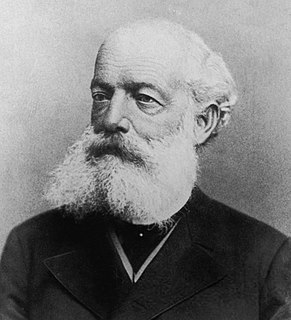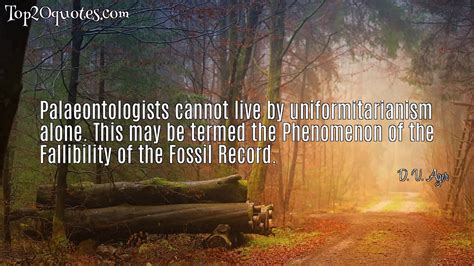A Quote by Thomas Nagel
It is prima facie highly implausible that life as we know it is the result of a sequence of physical accidents together with the mechanism of natural selection. We are supposed to abandon this naïve response, not in favor of a fully worked out physical/chemical explanation but in favor of an alternative that is really a schema for explanation, supported by some examples. What is lacking, to my knowledge, is a credible argument that the story has a nonnegligible probability of being true.
Quote Topics
Abandon
Accidents
Alternative
Argument
Being
Being True
Chemical
Credible
Examples
Explanation
Favor
Fully
Highly
Know
Knowledge
Lacking
Life
Mechanism
Natural
Natural Selection
Out
Physical
Prima
Probability
Really
Response
Result
Selection
Sequence
Some
Story
Supported
Supposed
Together
True
Worked
Related Quotes
The question whether atoms exist or not... belongs rather to metaphysics. In chemistry we have only to decide whether the assumption of atoms is an hypothesis adapted to the explanation of chemical phenomena... whether a further development of the atomic hypothesis promises to advance our knowledge of the mechanism of chemical phenomena... I rather expect that we shall some day find, for what we now call atoms, a mathematico-mechanical explanation, which will render an account of atomic weight, of atomicity, and of numerous other properties of the so-called atoms.
In fact, books are still being published by the lunatic fringe with the same explanation. In case this book should be read by some fundamentalist searching for straws to prop up his prejudices, let me state categorically that all my experience (such as it is) has led me to an unqualified acceptance of evolution by natural selection as a sufficient explanation for what I have seen in the fossil record.
One must be prepared to reject not only the schema of the physical library, which is essentially a response to books and their proliferation, but the schema of the book itself, and even that of the printed page as a long term storage device, if one is to discover the kinds of procognitive systems needed in the future.
The question is: exactly how did life get here? Was it by natural selection and random mutation or was it by something else? Everybody - even Richard Dawkins - sees design in biology. You see this design when you see co-ordinated parts coming together to perform a function - like in a hand. And so it's the appearance of design that everybody's trying to explain. So that if Darwin's theory doesn't explain it we're left with no other explanation than maybe it really was designed. That's essentially the design argument.
The argument from design is ultimately an appeal to miraculous causes, i.e., causes that do not, and cannot, occur in the natural course of events. This is why an explanation via design is not a legitimate alternative to scientific and other naturalistic modes of explanation. To refer to a miraculous cause is to refer to something that is inherently unknowable, and this sanctuary of ignorance explains nothing at all. However much it may soothe the imagination of the ignorant, it does nothing to satisfy the understanding of a rational person.
When confronted with a demand that the universe have a cause, infidels have usually pointed out that God was not much of an explanation. This is true enough, but not really a positive argument. After mechanistic explanation became popular, infidels liked to restrict causality to the chain of causes in an eternal material universe, pointing out that no supernatural cause was then necessary. Plausible, but still rather defensive. Today's skeptic can do better. In all likelihood, the universe is uncaused. It is random. It just is.
The explanation of types of structure in classes - as resulting from the will of the Deity, to create animals on certain plans - is no explanation. It has not the character of a physical law and is therefore utterly useless. It foretells nothing because we know nothing of the will of the Deity, how it acts and whether constant or inconstant like that of man.
The fact that we're all hyphenating our names suggests that we are afraid of being assimilated. I was talking on the BBC recently, and this woman introduced me as being "in favor of assimilation." I said, "I'm not in favor of assimilation." I am no more in favor of assimilation than I am in favor of the Pacific Ocean. Assimilation is not something to oppose or favor - it just happens.
It is important to know that criticism is a natural part of life and speaking out, and to know that a certain amount of the criticism you receive may have nothing to do with you, your argument, or the way you are articulating yourself. Some criticism online and in the physical world is neither constructive, nor balanced or intelligent. Some of it is abuse.








































